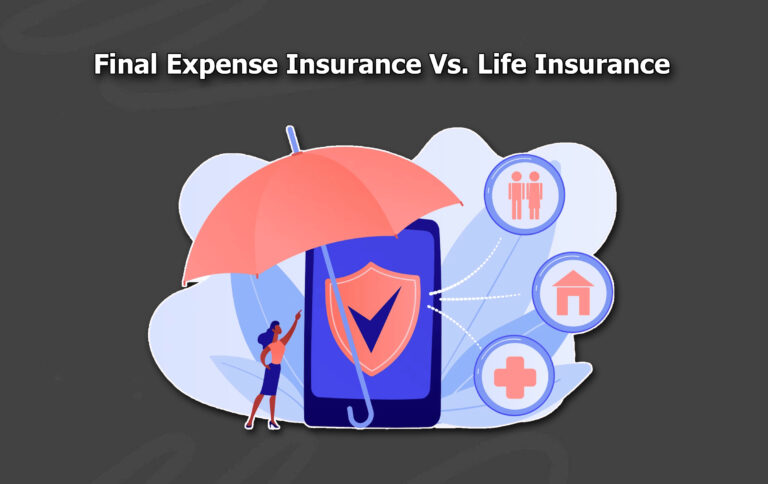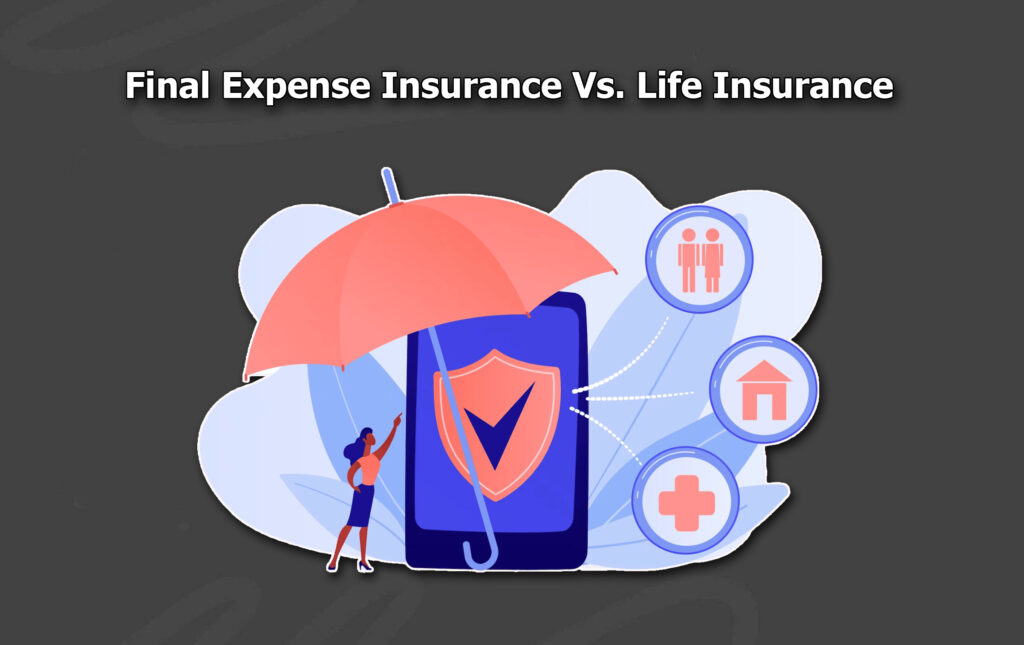
Final Expense Insurance vs. Life Insurance – When it comes to planning for the future, one of the most important financial steps is securing life insurance.

This not only provides peace of mind but ensures that loved ones are not burdened with expenses in the event of your passing.
However, choosing the right type of insurance can be confusing—especially when faced with terms like final expense insurance and traditional life insurance.
Although these policies may seem similar, they serve very different purposes and are designed for different needs.
What’s more, understanding the distinction between these two can help you make better decisions that align with your personal goals, family obligations, and financial situation.
What Is Final Expense Insurance?
Also referred to sometimes as the burial insurance or funeral insurance, this is a type of whole life insurance policy that is specifically designed to cover the costs associated with end-of-life expenses.
Furthermore, these expenses covers things like funeral services, cremation or burial, caskets, and possibly unpaid medical bills.
Additionally, this insurance model is mostly popular among seniors who may not need a large life insurance policy but want to ensure that their families aren’t left with the financial burden of funeral costs.
Some of the key features of final expense insurance are:
- Smaller coverageamounts ranging from $2,000 to $50,000.
- Affordable monthly premiums where they are generally manageable.
- Benefits are usually paid quickly, helping families deal with immediate expenses.
- Whole life policy and it doesn’t expire as long as you keep paying premiums.
- It often doesn’t require a medical exam, just a simple health questionnaire.
Final expense insurance is ideal for those who want a straightforward policy where they can cover funeral and small medical expenses without overcomplicating the process.
What Is Life Insurance?
Life insurance is a financial product that provides a lump-sum payment, known as a death benefit, to beneficiaries when the policyholder’s dead.
The money received can be used to settle a lot of pending needs, including replacing lost income, paying off debts, funding education, or simply providing financial security for dependents.
There are multiple types of life insurance, including term life and whole life, with its own structure.
Some features that the traditional life insurance offers include:
- High Coverage Limits
- Financial Protection for Families
- Requires Medical Underwriting
- Cash Value Accumulation (for Whole Life)
- Term or Whole Life Options
Life insurance is more versatile than final expense insurance and is ideal for younger individuals, breadwinners, or anyone with financial dependents.
Final Expense Insurance Vs. Life Insurance – Differences
While both policies are designed to provide financial assistance upon death, they cater to very different needs and come with distinct characteristics. Listed below are the some of the major differences you’ll need to understand:
| Features | Final Expenses | Life Insurance |
| Coverage Amount | $2,000 to $50,000. | $100,000 to millions of dollars |
| Medical Requirements | Usually no medical exam required | Most require a medical exam or health review |
| Cost | Lower monthly premiums due to small coverage. | Can be more expensive, especially for whole life policies. |
| Age of Applicant | Typically geared toward older adults (ages 50+). | Suitable for a wider age range |
| Policy Duration | Whole life – stays in force as long as premiums are paid | Can be term-based or lifelong |
| Purpose | Covers funeral, burial, and minor medical expenses | Replaces income, secures long-term financial stability for loved ones |
Which Option Can One Choose?
Settling on the best choice depends entirely on your financial goals and personal circumstances. If your main concern is ensuring your funeral costs are covered without it being a financial burden on your family, then the final expense insurance may be sufficient.
However, if you have dependents, a mortgage, or long-term financial obligations, then the comprehensive life insurance policy is a more better option.
Additionally, it would be wise to also consider your health status, age, and budget. Final expense insurance is easier to qualify for if you’re older or have medical issues.
Frequently Asked Questions
Can I Have Both Final Expense And Life Insurance?
Yes, you can actually own both policies. Some people use life insurance for income replacement and a final expense policy specifically to cover funeral costs. They know how to make them complement each other.
What Happens If I Outlive My Term Life Insurance?
If you outlive your term life policy, it will expire with you not getting any payout. Hence, you may have the option to renew or convert it to a permanent policy.
Is Final Expense Insurance Worth It For Seniors?
Yes, it is. It is most especially special for seniors who may not qualify for traditional life insurance or who simply want to cover end-of-life expenses without a high monthly premium.